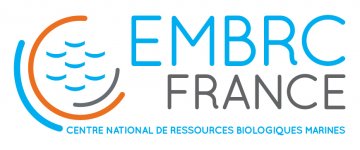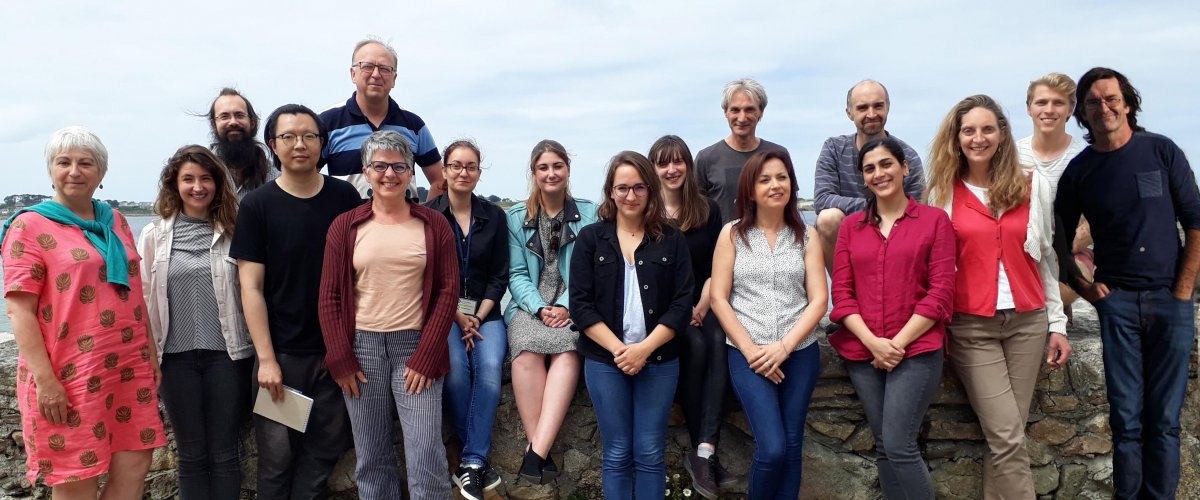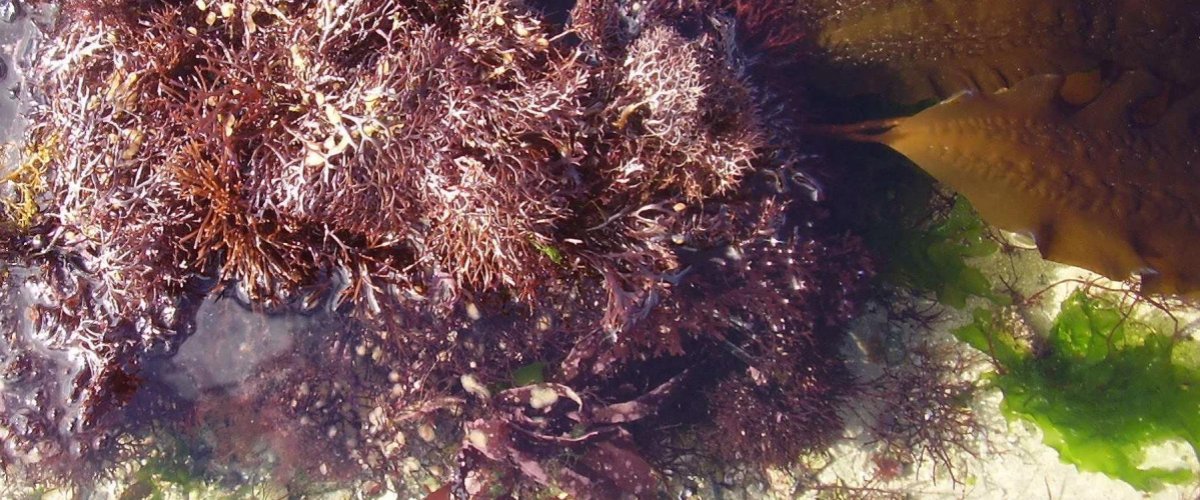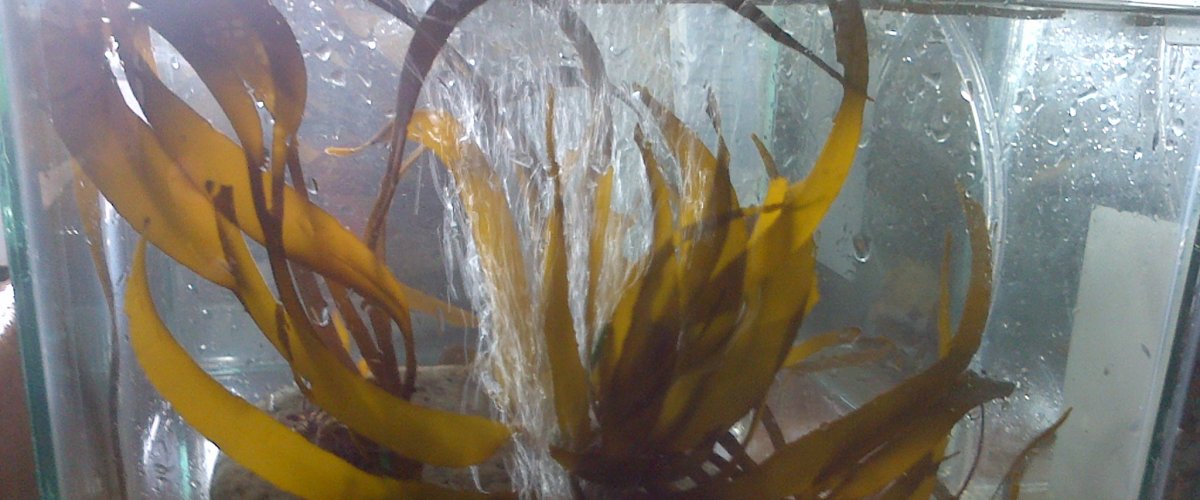Presentation
A better understanding of how large marine algae live in their environment
In the intertidal zone, marine algae are subject to a fluctuating environment and must face various different stressors (herbivores, microbes, etc...). In the ABIE team, we seek to decipher some of the mechanisms evolved by these plants to acclimate and adapt to the marine environment.
We are particularly interested in the metabolic responses of algae to biotic and abiotic stresses and in the defense and chemical signaling of brown algae during interactions with herbivores or endophytes. By studying the biology of the holobiont, i.e. the algae and their microbiome, we also seek to elucidate the role of associated bacteria in algal physiology. Access to the genomes of model algae and associated bacteria allows us to explore the functions of original metabolic pathways through functional genomics approaches. Genomic data are also a resource study the evolution of metabolic pathways involved in algal physiological responses.
Focused on a few model brown algae (Ectocarpus, Laminaria, and Saccharina) or red algae (Chondrus crispus), our research work integrates bacterial (meta)genomics, comparative genomics and metabolic network reconstruction (bioinformatics) approaches, high throughput analysis of genome regulation (transcriptomics) and metabolism (metabolic profiling), chemical ecology (function of metabolic products), and protein biochemistry (enzymology and structural biology).










